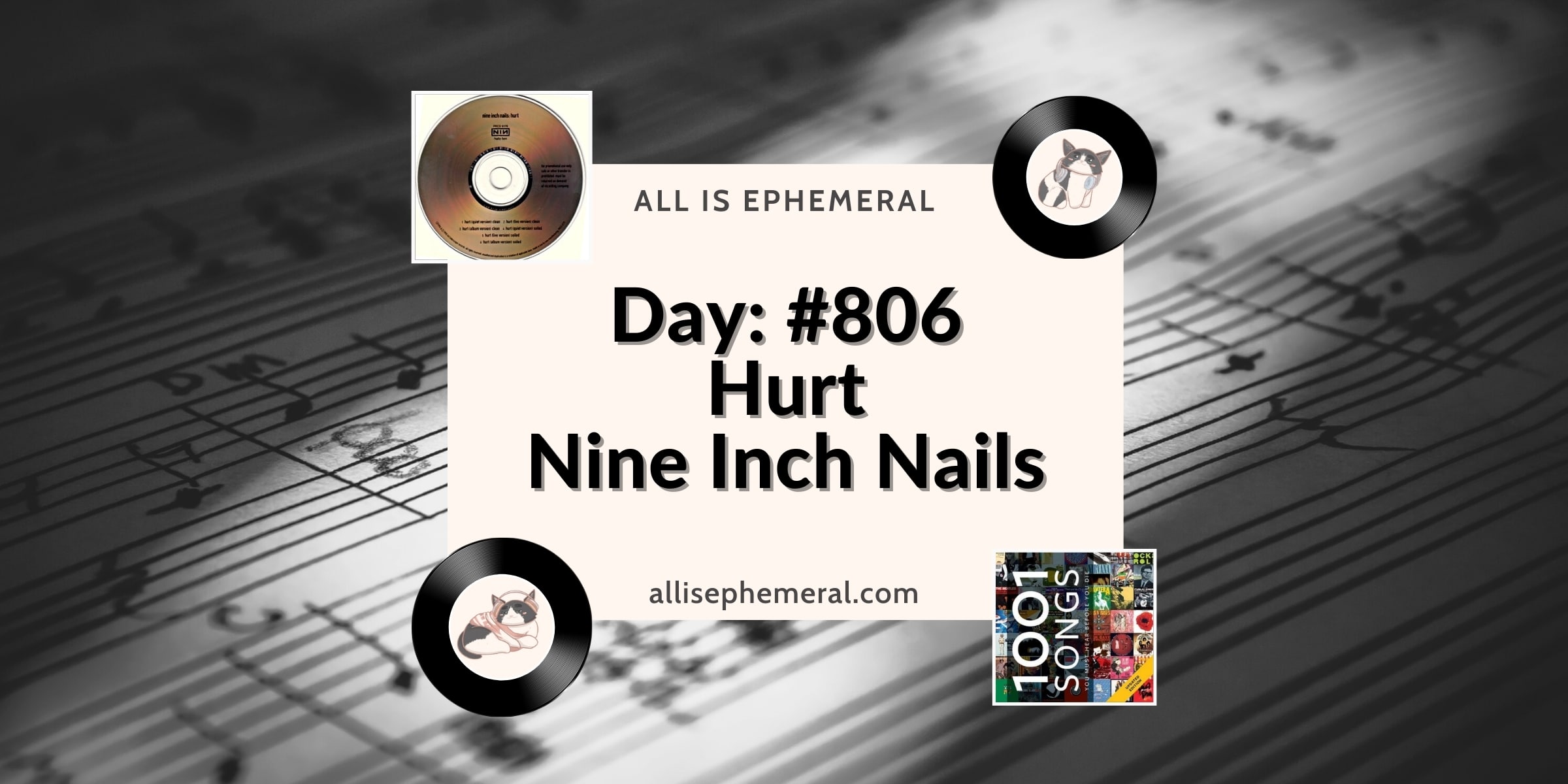
1001 Songs Challenge #807: Black Hole Sun (1994)
 On 11 February 2019 I set myself the challenging of reading 1001 Songs You Must Hear Before You Die by Robert Dimery (ed.) and following the book’s advice to the letter. I’ve previously read 1001 Films… and started 1001 Albums… but felt 1001 Songs… would be a sensible place to start for what I have in mind here.
On 11 February 2019 I set myself the challenging of reading 1001 Songs You Must Hear Before You Die by Robert Dimery (ed.) and following the book’s advice to the letter. I’ve previously read 1001 Films… and started 1001 Albums… but felt 1001 Songs… would be a sensible place to start for what I have in mind here.
My challenge is to read about one song per day and listen to it (YouTube and Spotify, I need you tonight!) before sharing my own thoughts. Some songs I will love, others I’ll hate, and I’m sure there will be those that leave me perplexed but listen to them I shall.
I’ll also try, and most likely fail, to pinpoint the best song from the 1001 on offer but I’m nothing if not foolhardy. Instead of one song, I’m predicting I’ll have about 100 favourites by the end and may have to resort to a Top 10 so far to maintain any semblance of sanity.
of one song, I’m predicting I’ll have about 100 favourites by the end and may have to resort to a Top 10 so far to maintain any semblance of sanity.
So long as I post everyday (including Christmas) then this challenge should come to an end on Wednesday 8 November 2021. Staying with the Barney Stinson theme I am hoping that the whole experience will prove to be…
Soundgarden – Black Hole Sun (1994)
Black Hole Sun – Wikipedia
” Black Hole Sun” is a song by the American rock band Soundgarden. Written by frontman Chris Cornell, the song was released in 1994 as the third single from the band’s fourth studio album Superunknown (1994). It is one of the band’s most popular and recognizable songs.
We’re staying in the US today, dear reader, but leaving Ohio and heading west to Seattle in Washington to partake once again of the grunge scene that began there. Soundgarden were formed in 1984 and became one of the key names in grunge alongside Nirvana and Pearl Jam. We join the group in 1994 with the release of their biggest album – Superunknown – and from this superb record 1001 Songs have gone with Black Hole Sun.
Written by singer, Chris Cornell, Black Hole Sun has been described as a sad song but one that is lyrically bereft of much meaning. Cornell wrote lyrics to fit a melody he was working on and looking back said he wasn’t completely sure what it was all about other than stream of consciousness. The verses seem to paint a bleak picture of the world and the surroundings with reference to things such as “summer stench” and “cold and damp”. The chorus makes reference to the “black hole sun” of the title and calls upon the beacon to take the rain away. This could be literal rain or metaphorical that might symbolise depression or a form of low mood. Cornell insisted looking for a deep meaning was pointless.
meaning. Cornell wrote lyrics to fit a melody he was working on and looking back said he wasn’t completely sure what it was all about other than stream of consciousness. The verses seem to paint a bleak picture of the world and the surroundings with reference to things such as “summer stench” and “cold and damp”. The chorus makes reference to the “black hole sun” of the title and calls upon the beacon to take the rain away. This could be literal rain or metaphorical that might symbolise depression or a form of low mood. Cornell insisted looking for a deep meaning was pointless.
I owned Superunknown when it was first released and it remains a stunning album more than twenty years later. Black Hole Sun is one of the best tracks on there along with The Day I Tried to Live and Like Suicide. Black Hole Sun benefited from a surreal but brilliant music video which is worth a look if you haven’t seen it before. The band disbanded in 1997 following creative differences but reunited in 2010. They came to a permanent end in 2017 when Chris Cornell committed suicide. He was just 52 and his bandmates were adamant that without him there was no Soundgarden. They were right.
Favourite songs so far:
The Animals – House of the Rising Sun (1964)
Simon & Garfunkel – The Sounds of Silence (1965)
The Beatles – A Day in the Life (1967)
Pink Floyd – Wish You Were Here (1975)
Meat Loaf – Bat Out of Hell (1977)





